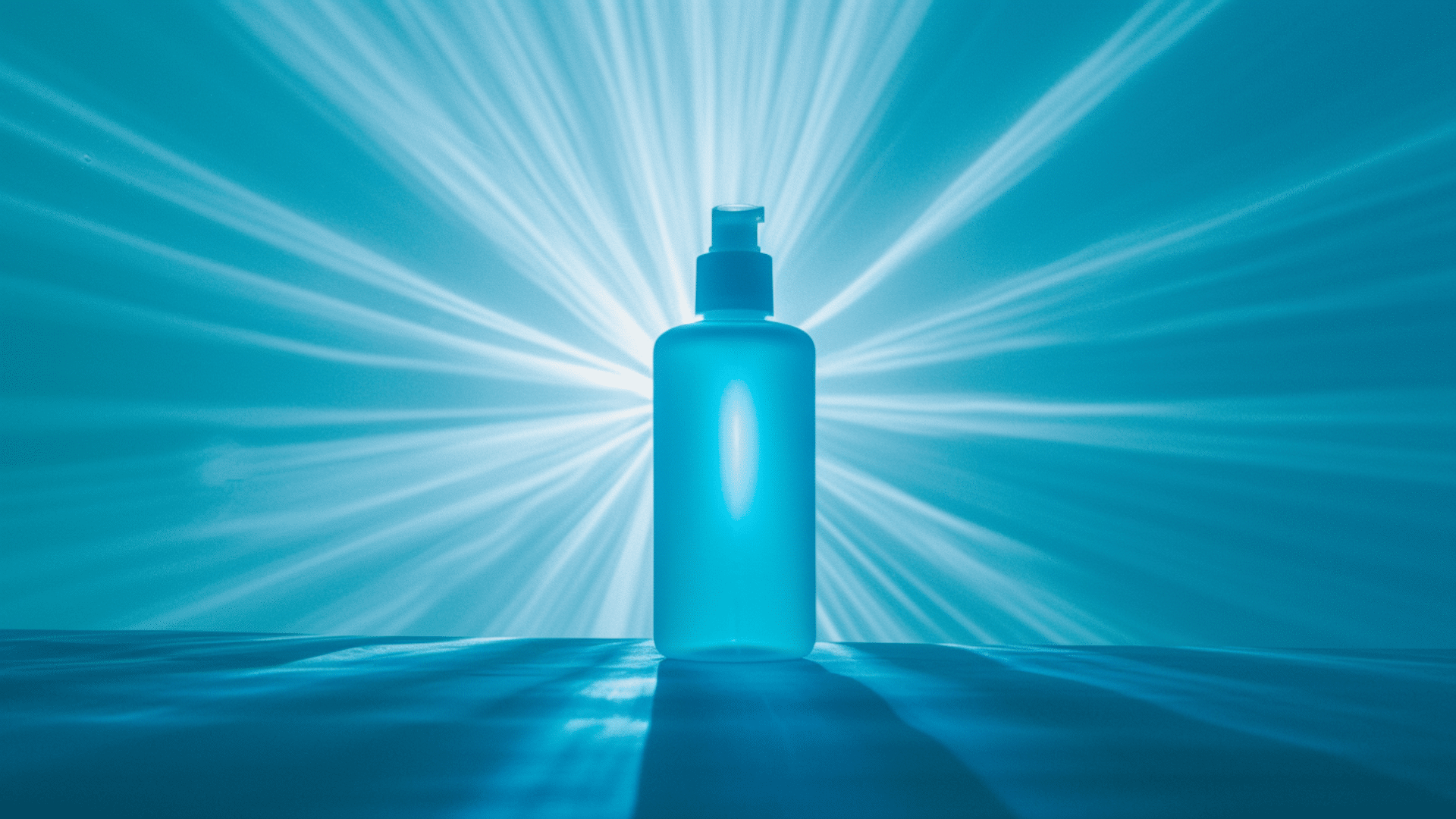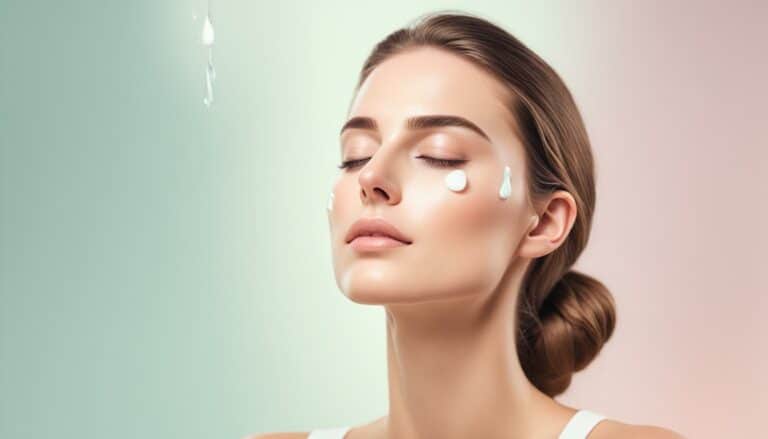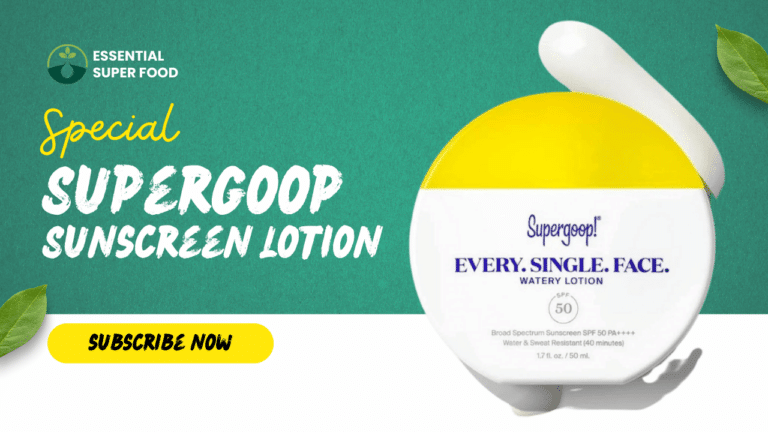What Is Blue Light And The Best Blue Light Sunscreen?
Is it possible that the blue light glow from your smartphone or laptop is aging your skin? There’s an increasing body of evidence suggesting that blue light, the kind emitted by our beloved screens and also by the sun, can contribute to skin damage.
This may be a surprising revelation, but don’t let it unsettle you. The skincare industry is already one step ahead with an innovative new solution: blue light sunscreen. As the name suggests, it’s designed to protect your skin not only from UVA and UVB rays, but also from blue light.
Intrigued? Stay with us as we explore this further and uncover whether blue light sunscreen should be the new addition to your skincare arsenal.
Key Takeaways
- Blue light sunscreen provides protection not only against UV rays but also against blue light exposure from digital devices and the sun.
- When choosing a blue light sunscreen, look for a high SPF factor (30 or higher), broad-spectrum coverage, and ingredients like zinc oxide and titanium dioxide that specifically block blue light.
- Sunscreens with antioxidants like vitamin C or green tea extract offer enhanced protection against blue light and environmental aggressors.
- Some notable blue light sunscreens include EltaMD UV Clear Tinted Face Sunscreen, La Roche-Posay Anthelios Tinted Sunscreen, Thinksport SPF 50+ Mineral Sunscreen, and Blue Lizard Sensitive Mineral Sunscreen.
Understanding Blue Light

Blue light, a type of visible light, possesses a shorter wavelength and higher energy, allowing it to penetrate deep into our eyes and reach the back of our retina. This light is everywhere in our technologically driven society, emitted by the sun, digital screens, and LED lights. While it’s near impossible to avoid, understanding its potential effects on your skin and overall health is crucial.
Excessive blue light exposure can lead to skin damage, similar to the effects of UVA and UVB rays. This is where blue light sunscreen steps in. Its unique formulation includes ingredients like zinc oxide and titanium dioxide, creating a physical barrier that reflects harmful rays away. Also, it’s enriched with antioxidants like vitamin C, helping to shield your skin from environmental stressors and free radicals.
Incorporating blue light sunscreen into your daily routine provides an additional layer of protection, particularly if you’re frequently exposed to digital screens or spend considerable time outdoors. It’s about serving your skin’s needs today to ensure its health and vitality for the future.
Effects of Blue Light
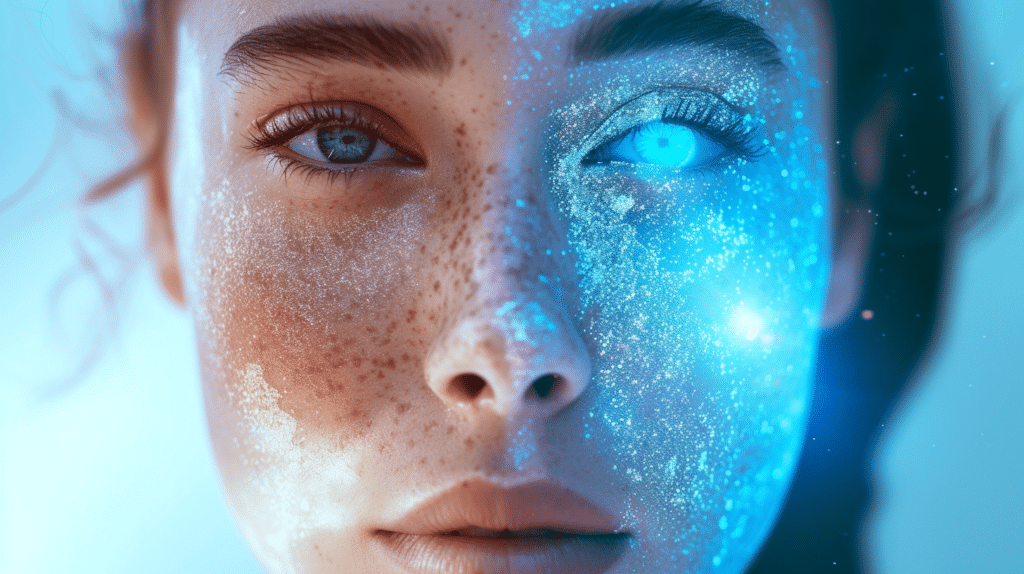
When you’re continually exposed to blue light, particularly through extensive screen time, your eyes and skin can experience various adverse effects. The high-energy, short-wavelength light can penetrate deep into the skin, accelerating the aging process and damaging cells, potentially leading to skin conditions or diseases.
For individuals with sensitive skin, blue light exposure can cause inflammation, redness, and other discomforts. This is where the importance of a mineral-based sunscreen with a high SPF comes into play. Protecting your skin from blue light isn’t just about avoiding digital eye strain or improving sleep patterns, it’s also about taking care of your skin’s health and longevity.
Consider these effects of blue light on your skin:
- Acceleration of the aging process due to disruption of the skin’s collagen and elastin
- Potential for hyperpigmentation, leading to uneven skin tone or dark spots
- Increased risk for certain skin conditions or diseases due to cellular damage
To combat these, equip yourself with a mineral-based, high SPF sunscreen. Not only will it shield your skin from UV rays, but it’s a necessary defense against the blue light that’s part of your daily life.
Protection From Blue Light
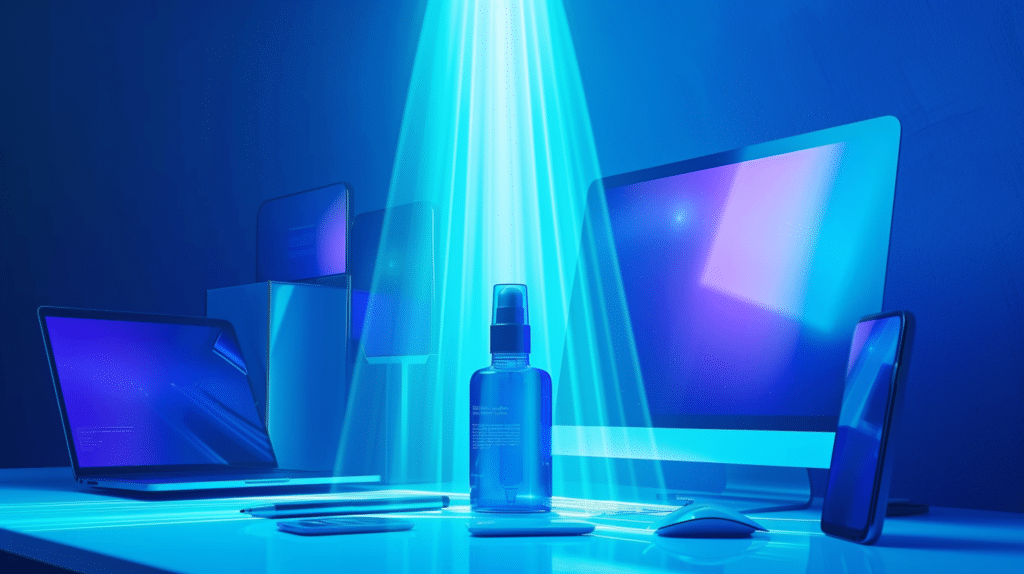
Given these harmful effects of blue light on your skin, it’s crucial to consider various methods of protection, with blue light sunscreen being the most effective. This unique type of sunscreen offers broad-spectrum protection, shielding your skin from both UVA and UVB rays while also filtering out harmful blue light.
Look for sunscreens containing zinc oxide and titanium dioxide. These ingredients form a physical barrier on your skin, reflecting away the harmful rays. Additionally, they’re known for their effectiveness against blue light, offering you the utmost protection.
Here’s a table to illustrate some blue light sunscreens:
| Product | Key Ingredient | Benefits |
|---|---|---|
| Blue Guard High Protection | Zinc Oxide | Broad-spectrum, Oil-free, Suitable for sensitive skin |
| Eclipse Age Defense | Titanium Dioxide | SPF 50+, Anti-aging benefits |
| Solar Defense Total Coverage | Zinc Oxide & Titanium Dioxide | SPF 30, Full body coverage |
Blue Light Sunscreen
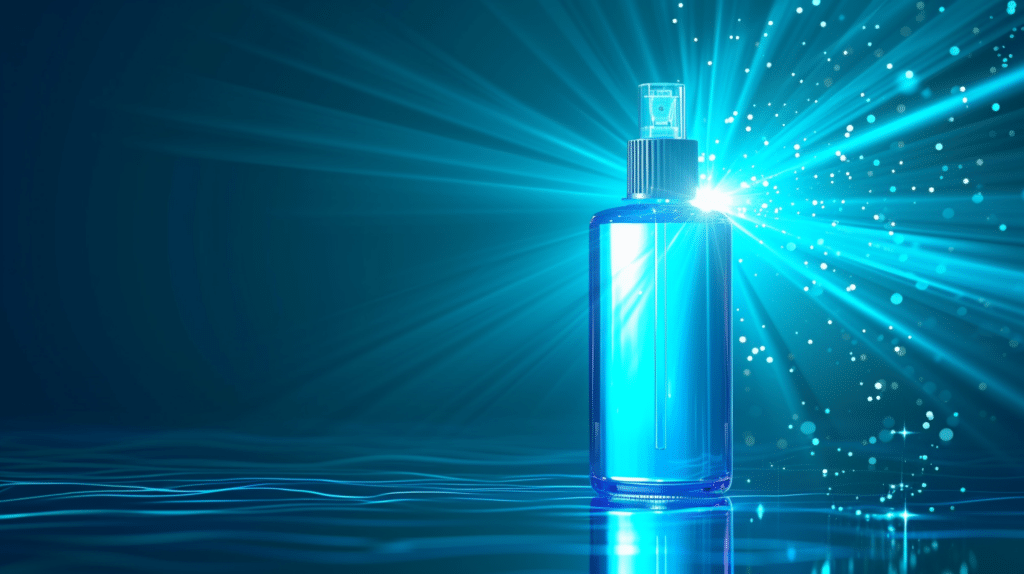
If you’re spending significant time in front of digital screens or under the sun, it’s essential to understand the role and benefits of blue light sunscreen in your skincare routine. This product provides an extra layer of defense against harmful rays, particularly for those with sensitive skin.
Blue light sunscreen, unlike traditional products, offers protection from both UV and high-energy visible (HEV) light. The latter comes from digital screens and can cause skin damage over time. The sunscreen does this by using ingredients like zinc oxide and titanium dioxide, which create a physical barrier on your skin to reflect harmful rays.
Consider these benefits:
- Protects your skin from the long-term effects of blue light exposure, such as premature aging.
- Offers UV protection, defending your skin from UVA and UVB rays, reducing the risk of skin cancer.
- Particularly beneficial for sensitive skin, as it prevents inflammation and irritation caused by sun and screen exposure.
Choose a blue light sunscreen with broad-spectrum UV/UVB protection for the best results. Remember, taking care of your skin today can save you from potential issues down the line.
How Blue Light Sunscreen Works

To fully appreciate the effectiveness of blue light sunscreen, you need to understand how it operates at a microscopic level to shield your skin from harmful rays. It essentially works by forming a protective barrier on the surface of your skin, bouncing off harmful blue light, and UVA and UVB rays.
Key ingredients such as Zinc Oxide and Titanium Dioxide are often found in these sunscreens. They act as physical blockers, reflecting the blue light and UV rays away from your skin. Antioxidants are also included to neutralize the harmful effects of these rays and mitigate skin damage.
Consider the following table to understand the key components and their functions:
| Ingredient | Role | Effect |
|---|---|---|
| Zinc Oxide | Physical Blocker | Reflects blue light and UV rays |
| Titanium Dioxide | Physical Blocker | Reflects blue light and UV rays |
| Antioxidants (Vitamin C, Green Tea) | Skin Defense | Neutralizes harmful effects of rays |
Importance and Benefits of Sunscreen

While understanding how blue light sunscreen works is crucial, it’s equally vital to grasp the overarching importance and benefits of sunscreen use in general. The primary function of sunscreen is to protect your skin from the sun’s harmful ultraviolet rays, which can cause sunburn, skin aging, and skin cancer.
Here’s why sunscreen should be a non-negotiable part of your daily routine:
- Prevention of Premature Aging: Sunscreen shields your skin from developing signs of aging, such as wrinkles and fine lines. By using sunscreen, you’re preserving your skin’s health and youthfulness.
- Lower Skin Cancer Risks: Regular application of sunscreen reduces the risk of contracting skin cancer, especially melanoma, which is known to be extremely aggressive and life-threatening.
- Protection Against Sunburn: Sunburn weakens your skin, subjecting it more to bruises. Your skin may suffer repeated attacks of peeling, swelling, redness, and hives. Thus, sunscreen plays a vital role in preventing this.
Incorporate sunscreen into your skincare routine. It’s not just about maintaining your skin’s aesthetics, but more importantly, it’s about safeguarding your overall health.
Choosing the Right Blue Light Sunscreen
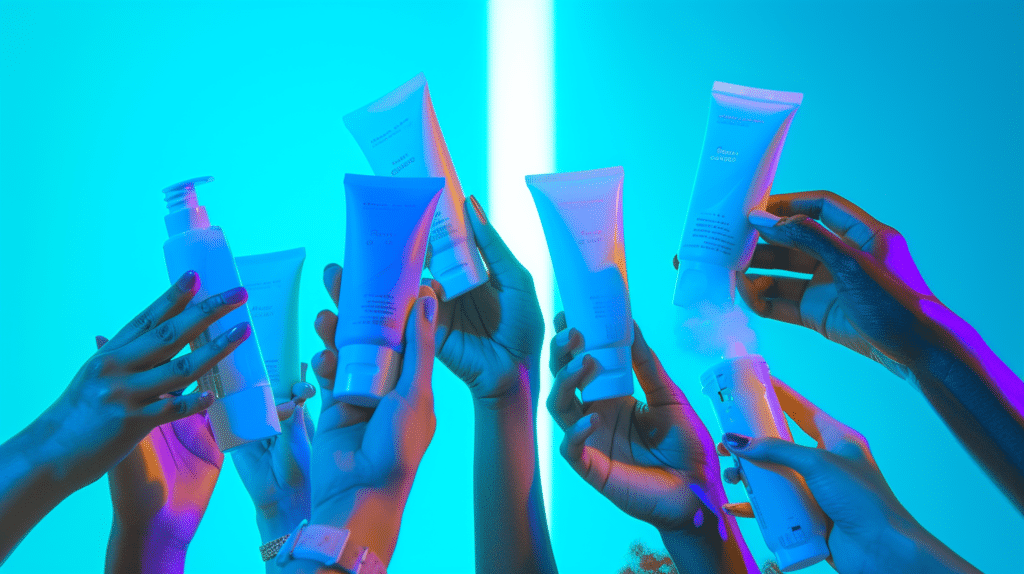
Navigating the array of blue light sunscreens on the market can be daunting, but understanding what to look for can help ensure you’re choosing the most effective product for your skin needs.
Consider factors like SPF rating, broad-spectrum coverage, and ingredient list. A high SPF rating (30 or above) is desirable. Broad-spectrum coverage ensures protection from both UVA and UVB rays. Look for ingredients such as zinc oxide and titanium dioxide, known for blocking blue light.
Here’s a quick guide to help you:
| Feature | Importance | Example |
|---|---|---|
| SPF Rating | Higher SPF offers better protection | SPF 30 or above |
| Broad Spectrum | Protects against UVA and UVB rays | Labeled as ‘Broad Spectrum’ |
| Ingredients | Some ingredients block blue light | Zinc Oxide, Titanium Dioxide |
Frequently Asked Questions
What Are Some Recommended Brands of Blue Light Sunscreen?”
You’re seeking blue light sunscreen brands, right? Consider EltaMD UV Clear, La Roche-Posay Anthelios, Thinksport SPF 50+, and Blue Lizard Sensitive. They’re all high SPF, broad-spectrum, and contain blue light blocking ingredients.
Are There Any Side Effects of Using Blue Light Sunscreen?”
You might experience minor side effects like skin irritation or allergic reactions from blue light sunscreen. Always patch test new products and choose hypoallergenic, non-comedogenic options if you have sensitive skin.
Is Blue Light Sunscreen Safe for All Skin Types?”
Yes, blue light sunscreen is generally safe for all skin types. However, it’s vital to choose products suitable for your specific skin concerns, such as oil-free for acne-prone skin or hypoallergenic for sensitive skin.
Can Blue Light Sunscreen Replace My Regular Sunscreen?”
You can’t fully replace your regular sunscreen with blue light sunscreen. While it adds protection against blue light, you still need traditional sunscreen for broad-spectrum defense against UVA and UVB rays.
Where Can I Purchase Blue Light Sunscreen?”
You can purchase blue light sunscreen at various online retailers, pharmacies, or cosmetic stores. Brands like EltaMD, La Roche-Posay, and Thinksport offer products specifically designed to protect against blue light exposure.
Conclusion
In a nutshell, blue light sunscreen is a game changer in your skincare routine. By protecting your skin from the unseen harm of blue light, it provides a comprehensive shield against all skin-damaging rays.
Don’t let your skin pay the price of our digital age; invest in blue light sunscreen. Remember, prevention is better than cure, so give your skin the armor it needs to fight off these invisible enemies.
It’s high time to up your skincare ante.

